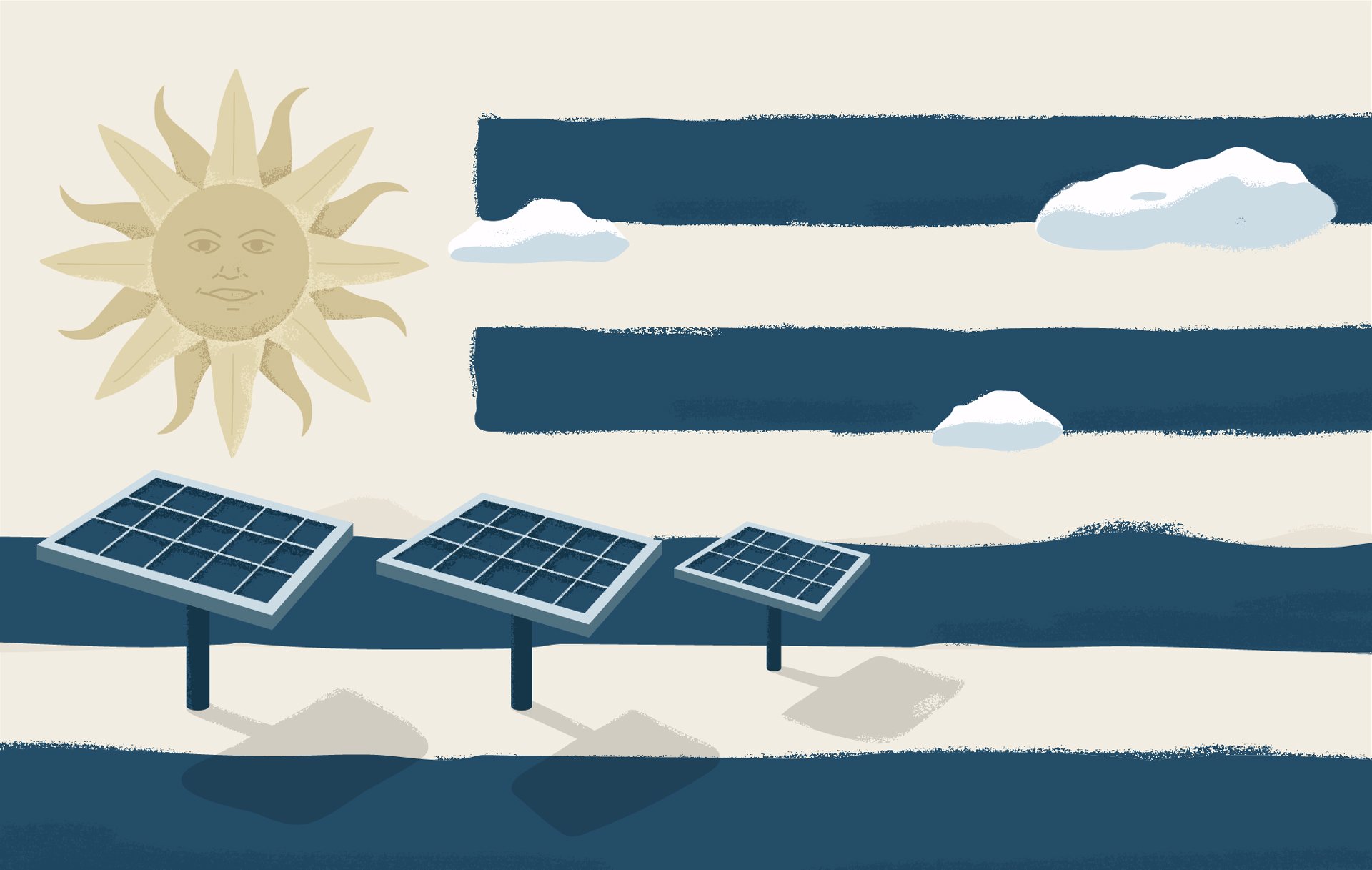- cross-posted to:
- [email protected]
- cross-posted to:
- [email protected]
“with wind the single-biggest contributor… Power production costs have declined “by almost half” … And the clean energy sector has created 50,000 new jobs… Ask me what was the impact on the electricity sector in Uruguay after this tragic war in Europe — zero.”



How do you cope when there is cloudy without wind?
They also have hydropower which provides a constant base load, and basically they have just heavily optimised their distribution of power to be very efficient. In emergencies they are also able to import power from neighbouring countries.
There are ways to store the power generated by renewables.
There are, but none is feasible today when it comes to mass storage. Or is there one?
There is actually. Pumped Storage hydro uses the energy as it’s generated from renewables and uses it to pump water up into a reservoir. Once you have the water pumped, it’s just a matter of letting the water back out through turbines. Their efficiency is somewhere around 80% which is pretty good.
For that you need both suitable hills and water. Also it’s not that huge, it certainly depends on the reservoir capacity. If it was a feasible solution, then you’d see them everywhere, but you don’t. Ask Germans about it.
How often is there no wind anywhere?
How cloudy does it have to be so you can’t generate power?
Is it possible to store power?